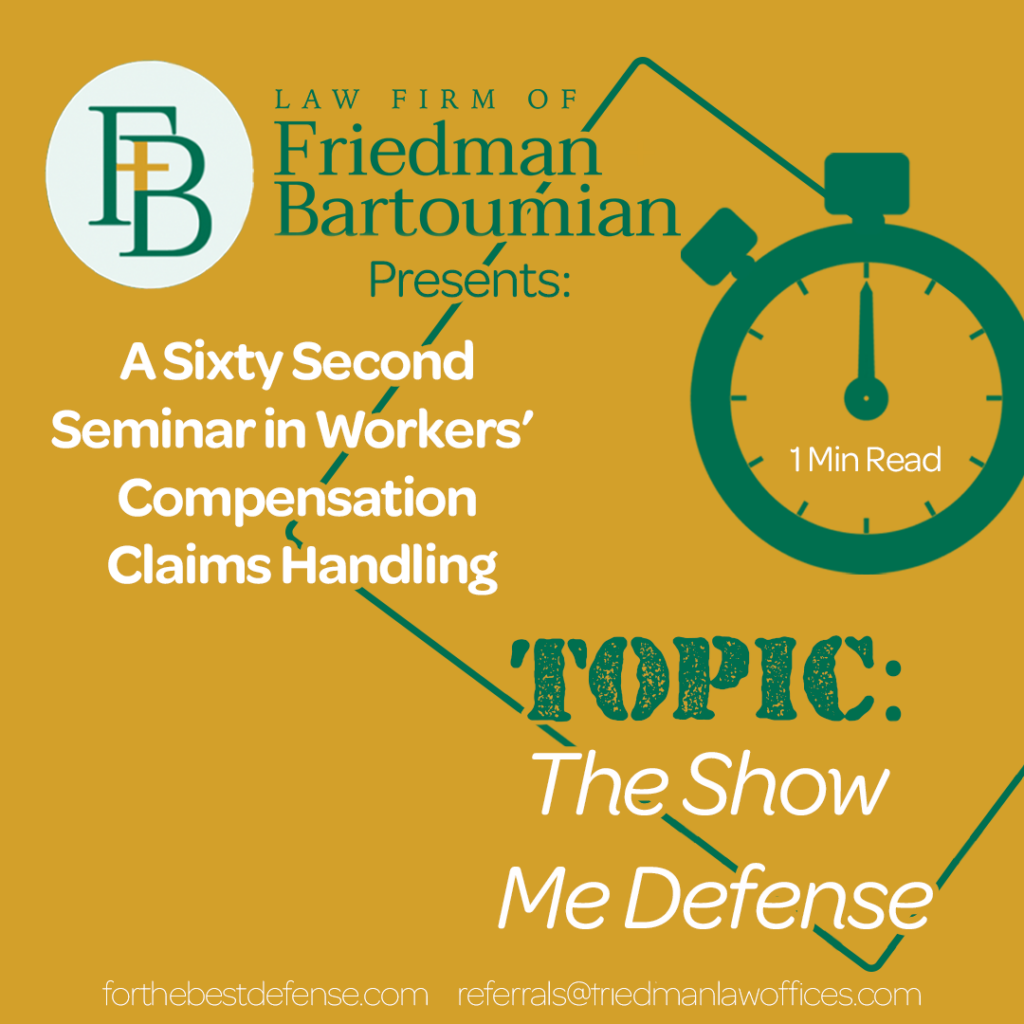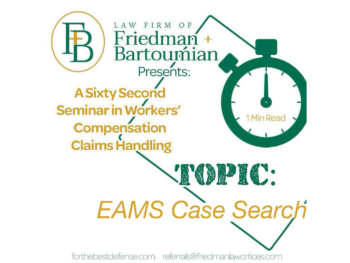
Arguably, the two most powerful words in workers’ compensation are “show me.” All too often opposing counsel will offer their interpretation of the law in an attempt to further an argument at the Board. When this occurs, it is vital for the defense to simply say, ‘show me.’ In other words, “prove it.”
It is amazing how much poker is figuratively played at the appeals board when one side attempts to bluff another. Whenever someone makes a valid point, they often prove their opinion without being asked by offering case law citation. Otherwise, they are probably bluffing.
Sometimes an applicant attorney will invent a fictional citation or perhaps reference an actual case law decision that is not exactly on point. Also, counsel may embellish their interpretation of case law to suit their needs. Keep in mind that just because case law may exist does not necessarily mean it addressed the issue in dispute. On the other hand, there are times when referenced case law is exactly on point but the decision may no longer be germane as the law has since changed or been repealed. Opposing counsel may either be unaware of it or is hoping you won’t notice. As a result, an employer has to be on their toes at all times and familiar with case law as it exists today.
All too often applicant attorneys will state their understanding of the law and request the defendants prove otherwise if they disagree. This is a trap. Don’t fall it. Put the burden back on the opposing counsel to prove their interpretation of the law. Don’t be the least bit bashful to say, “Show me.” The burden of proof is always on the party asserting the positive. It is never up to the defendant to disprove an unsupported argument. However, once proof is provided, then the defendant must do their homework to verify if the referenced authority does indeed prove applicant’s point. It would be incumbent on the defendant to conduct research since workers’ compensation case law contains many contradictory decisions. The challenge is to locate those decisions supporting the employer’s position. Once again, nothing begins until after the magic words “show me” are raised. Otherwise, whatever is being offered is nothing more than an unsupported opinion or in many cases, wishful thinking. So, if you are spending far too much time trying to disprove applicant attorney’s interpretation of the law, come over to Friedman + Bartoumian where we gladly will put the onus on counsel to request proof of their argument. In other words, we aren’t the least bit afraid to “call their bluff.”


 Red Flag UR Decisions: A 60-Second Seminar in Workers’ Compensation Claims Handling
Red Flag UR Decisions: A 60-Second Seminar in Workers’ Compensation Claims Handling
Leave a Reply